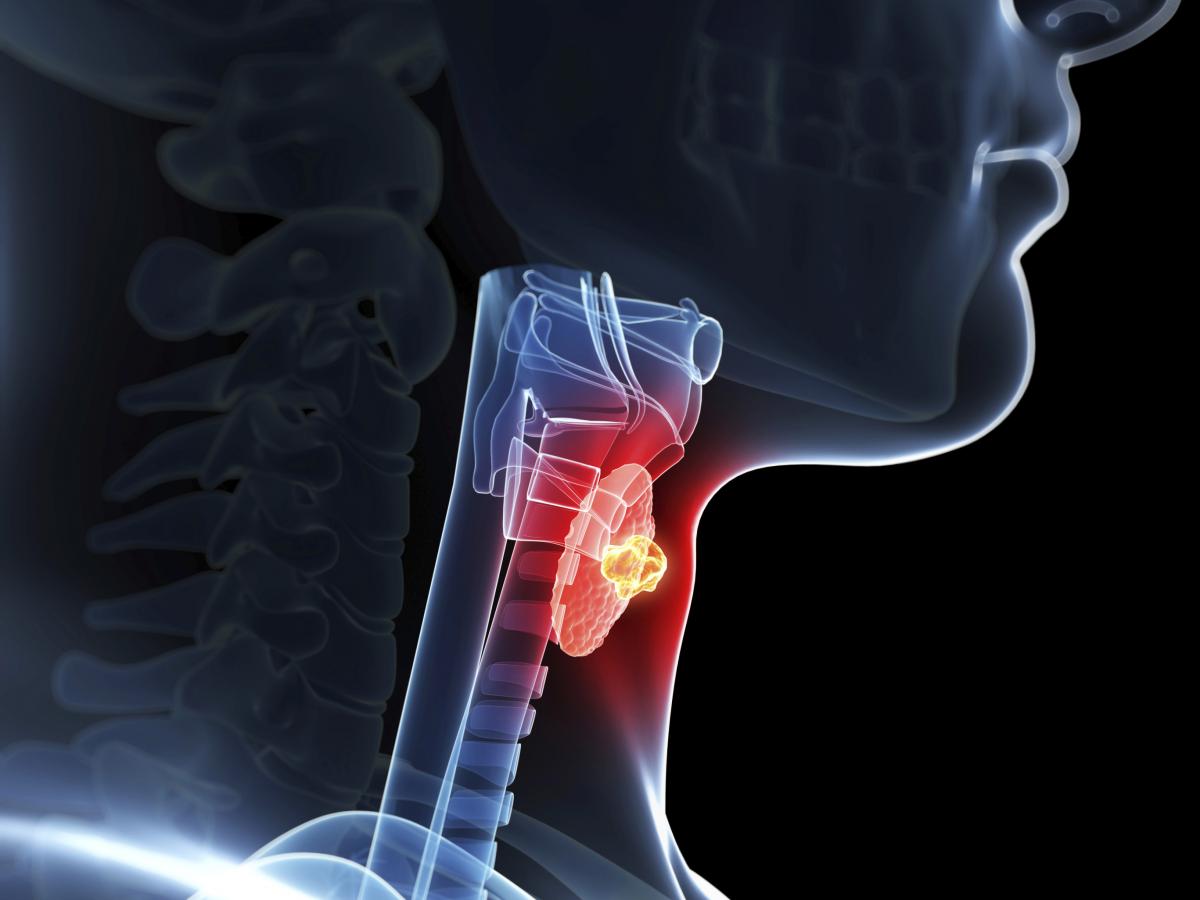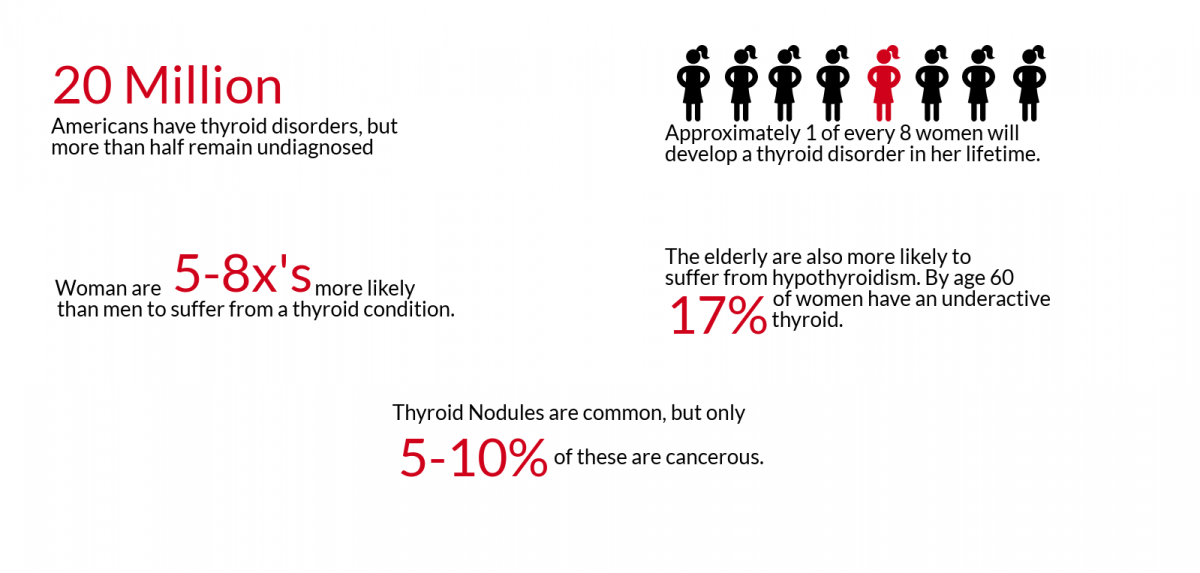Thyroid Disease
Common Questions about Thyroid Disease
What is the thyroid?

The thyroid is a small, butterfly-shaped gland just below the Adam’s apple. This gland plays a very important role in controlling the body’s metabolism, that is, how the body functions. It does this by producing thyroid hormones (T4 and T3), hormones that travel through the blood to every part of the body. Thyroid hormones tell the body how fast to work and use energy.
The thyroid gland works like an air conditioner. If there are enough thyroid hormones in the blood, the gland stops making the hormones (just as an air conditioner cycles off when there is enough cool air in a house). When the body needs more thyroid hormones, the gland starts producing again. The pituitary gland works like a thermostat, telling the thyroid when to start and stop. The pituitary sends thyroid stimulating hormone (TSH) to the thyroid to tell the gland what to do.
The thyroid gland might produce too much hormone (hypothyroidism), making the body use energy faster than it should, or too little hormone (hypothyroidism), making the body use energy slower than it should. The gland may also become inflamed (thyroiditis) or enlarged (goiter), or develop one or more lumps (nodules).
Who has Thyroid Disease?

